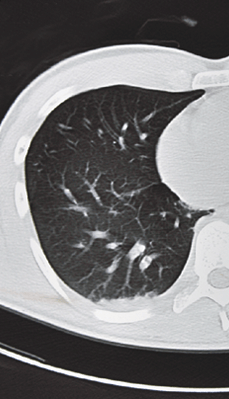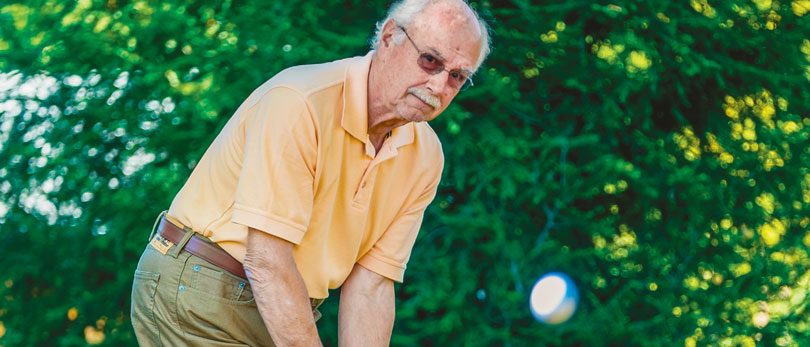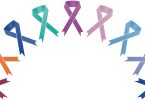You probably visit your doctor for checkups and recommended screenings such as mammograms and colonoscopies. But have you considered whether you should be screened for lung cancer?
Lung cancer causes more deaths than colorectal, prostate and breast cancers combined. In fact, lung cancer is America’s second-leading cause of death, behind heart disease.
The patient perspective: It’s worth it
Frank Martello, a 74-year-old Apalachin resident, has been a smoker for 50 years. This made him a great candidate for lung cancer screening, as Madhuri Yalamanchili, MD, told him during a visit for a separate health concern.
“I thought, why not check on it and see, and maybe if there were a problem, we’d be able to get ahead of the game,” says Mr. Martello.
He took Dr. Yalamanchili up on her advice and was relieved to receive cancer-free results in August of this year. “As it turned out, the results were great,” he says. “I’m so glad we did it.”
The experience has even motivated Mr. Martello to try to quit smoking. “I’m clean,” he says. “And it seems to me that there’s a good possibility that if I pursued a cessation program, I just might have a better chance to stay clean.”
“The high death rate is partly due to lung cancer being found in most patients after it has spread,” says Madhuri Yalamanchili, MD, a medical oncologist with Broome Oncology and co-medical director of UHS Medical Oncology. Lung cancer generally doesn’t cause symptoms until it has spread beyond the lungs. That’s why it is important for people at high risk for lung cancer to be screened.
Lung cancer screening at UHS is a noninvasive procedure using the latest technology: low-dose CT scanning. In this procedure, a powerful X-ray device rotates around your body, generating cross-sectional images of your lungs. The detailed images allow doctors to see cancerous nodules and small tumors early, often before cancer has spread.
Compared to traditional chest X-rays, low-dose CT scans are four times more likely to detect cancerous tumors and six times more likely to detect stage I cancers.
“In addition, lung cancer screening might also show if you have other conditions or diseases that need to be treated, like emphysema,” says Dr. Yalamanchili.
WHO CAN BENEFIT?
Anybody at high risk for lung cancer should consider screening. These factors increase your risk for lung cancer:
- Smoking: People who smoke cigarettes are 15 to 30 times more likely to get lung cancer than nonsmokers. The more years a person smokes and the more cigarettes they smoke per day, the higher their risk. Other tobacco products, such as cigars or pipes, also increase lung cancer risk.
- Secondhand smoke: Nonsmokers who are exposed to secondhand smoke at home or work increase their risk for lung cancer by 20 to 30 percent.
- Environmental exposure: Exposure to radon, a naturally occurring odorless gas, is the second-leading cause of lung cancer. Exposure to substances found at some workplaces can also increase lung cancer risk, including asbestos, arsenic and diesel exhaust.
- Family history: People with parents, siblings or children who have had lung cancer may have a higher risk for lung cancer.
If you have any of these factors, talk with your doctor to decide if screening is right for you.
ARE THERE RISKS?
During low-dose CT screening, patients are exposed to low levels of radiation. The radiation level is higher than a standard X-ray. “But it is much lower than a regular CT scan that one might have if they have symptoms of cancer,” says Dr. Yalamanchili. “Most individuals receive about the same amount of radiation as they do in six months in their natural environment.”

Compared to traditional chest X-rays, low-dose CT scans are four times more likely to detect cancerous tumors and six times more likely to detect stage I cancers.
If you and your doctor agree that you may be a candidate for lung cancer screening, the next step is to schedule a meeting with UHS nurse navigator Jennifer Schecter, NP, to discuss the risks and benefits and address questions and concerns.
Another potential risk is financial — many patients are concerned about whether their insurance will cover the test. The good news is that for people who can benefit from the test, it’s often covered. Medicare covers lung cancer screening for people who meet criteria for being at high risk for lung cancer. Most private health insurance carriers have similar policies.
Before you schedule your test, a UHS nurse navigator will check with your insurance provider and get approval. For patients with no insurance, or insurance denials, a UHS financial advocate can connect you with any financial assistance programs you may be eligible for or set up a payment plan.
WHAT IF MY SCREENING FINDS LUNG CANCER?
It’s scary to think about cancer, but screening can increase survival and quality of life if you do have lung cancer. Studies have shown that people at high risk for lung cancer who get annual low-dose CT scans, rather than chest X-rays, can reduce their chance of dying from lung cancer by 20 percent. This is because low-dose CT scans catch cancers earlier, when they are easier to treat.
“Lung cancer caught early has a higher chance of a cure,” says Dr. Yalamanchili. “And survival rates are much higher when cancers are caught at a relatively smaller size.”
If you’re at high risk for lung cancer, knowing you’re doing everything you can to catch it early can bring peace of mind.
ARE YOU A CANDIDATE? …
To learn if you’re a candidate for lung screening, call UHS Nurse Direct at 763-LUNG (5864).







